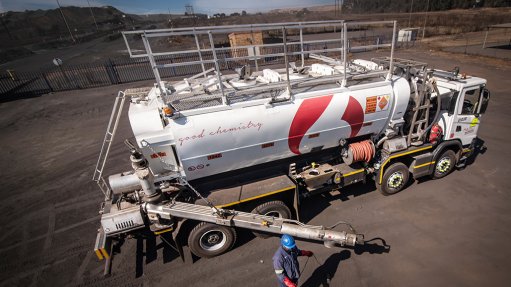Biometric identification is fine, but just don’t share private information
A growing technology is that of biometric interfaces. ‘Biometrics’ is just a smart way of saying “recognising the identity of a person by their fingerprints, voice or the pattern of the iris of one of their eyes”.
It seems that using biometrics to identify a person is convenient for all parties: the person no longer has to carry an ID book and, once registered on one database, he or she is registered on many others.
It certainly is very convenient – but for who? Certainly, the banks are overjoyed at this whole concept and have offered the South African government the process of collecting biometrics on all their customers. Unfortunately, this does not sound like a service to me – it just sounds ominously sinister.
On the same track, whenever you download an app, almost invariably, you get a little note from Google saying that, to use the app, you have to turn on the location function on your cellphone and you have to allow Google to install cookies on your cellphone. I am very sure that no one in America really cares about my location, so why does Google do it? Simply – so that it can use a database thus created to track my buying habits, my bank balance and my location. With this information, Google can customise advertising programmes aimed at me. And that, I think, is the kindest interpretation of what Google is doing.
We certainly have assurances from the banks and from Google that they will keep all this information private. Dream on. Recently, I applied for an extension of a bank loan. The man from the bank arrived two weeks after I had asked them to arrive and gave me a pile of documents to sign. I have been caught before, so I read through them diligently, to discover that one document, if I accepted the contents, would allow the bank to share all my financial information, my spending habits, my bank balance, my investments . . . everything . . . with a whole lot of people, including “any party to which the bank has assigned its rights”. In other words, anybody. Thus, the entire concept of banking secrecy goes out the window the moment you sign a loan document.
In parallel with biometric recognition is the virtual giving away of bandwidth through fibre-optic connections, which makes it possible for the Internet at home to become even faster. It is pretty darn fast right now – so, why would anybody want faster Internet?
Okay, perhaps you want to download some TV show, but the main reason is to provide worldwide communication of the private information of a person. This is sinister in the extreme.
However, very fortunately, all these attempts to get databases for population control are doomed to fail. At some stage, the information has to be transferred from one database to another and this is where the cake collapses. For example, the misinformation about my name is extensive – I am variously known and identified as MacHoy, Hoy, Mackenziehoy, Mackenzie-Hoy, McKenzie and other permutations. I get from various sources correspondence addressed to all these parties. Sometimes it collapses into farce: VVM debt collectors regularly call me (I have counted 18 times now) to tell me that I owe the South African Broadcasting Corporation R6 000 for an unpaid television licence. I tell them, no, it is paid up in the name of McHoy. This message never gets through – the database is never fixed.
On the day I wrote this piece, Vodacom sent me a birthday greeting addressed to Cindy. But I am not Cindy. I bought Cindy’s phone in 1994. Vodacom never changed the number to my name. An absolute forest of emails over ten years asking them to do this has had no effect.
Thus, sooner or later, the various databases will become corrupt, particularly as they spread through Africa. One can only imagine how the surname Chumorewatonga will be captured. The tragedy of all this is that it is not necessary. ID books work fine. It is effort and money simply to capture a sales market and information about people which really should stay private. Government, banks and Google should stop this capturing of extremely personal information. For moral reasons, if no other. Dream on.
Article Enquiry
Email Article
Save Article
Feedback
To advertise email advertising@creamermedia.co.za or click here
Press Office
Announcements
What's On
Subscribe to improve your user experience...
Option 1 (equivalent of R125 a month):
Receive a weekly copy of Creamer Media's Engineering News & Mining Weekly magazine
(print copy for those in South Africa and e-magazine for those outside of South Africa)
Receive daily email newsletters
Access to full search results
Access archive of magazine back copies
Access to Projects in Progress
Access to ONE Research Report of your choice in PDF format
Option 2 (equivalent of R375 a month):
All benefits from Option 1
PLUS
Access to Creamer Media's Research Channel Africa for ALL Research Reports, in PDF format, on various industrial and mining sectors
including Electricity; Water; Energy Transition; Hydrogen; Roads, Rail and Ports; Coal; Gold; Platinum; Battery Metals; etc.
Already a subscriber?
Forgotten your password?
Receive weekly copy of Creamer Media's Engineering News & Mining Weekly magazine (print copy for those in South Africa and e-magazine for those outside of South Africa)
➕
Recieve daily email newsletters
➕
Access to full search results
➕
Access archive of magazine back copies
➕
Access to Projects in Progress
➕
Access to ONE Research Report of your choice in PDF format
RESEARCH CHANNEL AFRICA
R4500 (equivalent of R375 a month)
SUBSCRIBEAll benefits from Option 1
➕
Access to Creamer Media's Research Channel Africa for ALL Research Reports on various industrial and mining sectors, in PDF format, including on:
Electricity
➕
Water
➕
Energy Transition
➕
Hydrogen
➕
Roads, Rail and Ports
➕
Coal
➕
Gold
➕
Platinum
➕
Battery Metals
➕
etc.
Receive all benefits from Option 1 or Option 2 delivered to numerous people at your company
➕
Multiple User names and Passwords for simultaneous log-ins
➕
Intranet integration access to all in your organisation


















